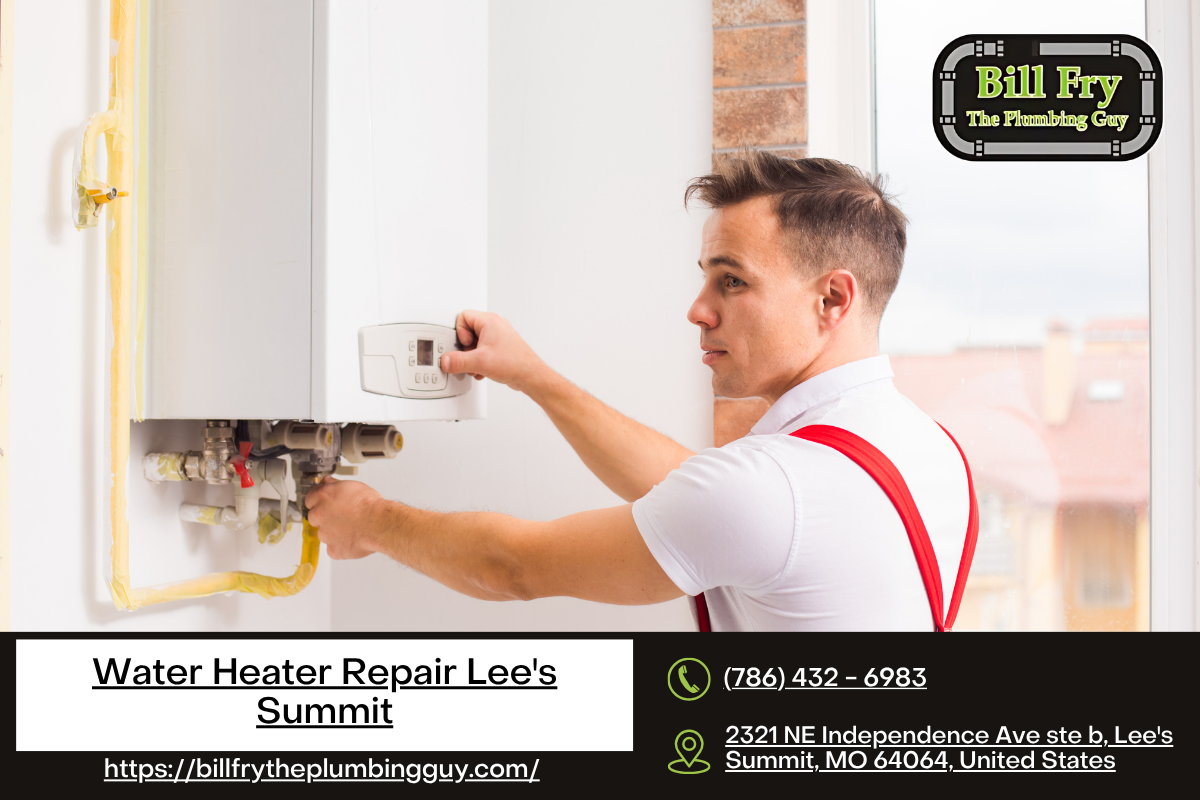


Water heaters are essential appliances that provide comfort and convenience in our daily lives. When it comes to replacing an old or malfunctioning unit, homeowners in Lee's Summit often face a daunting decision: how to choose a cost-effective option that meets their needs without breaking the bank? In this comprehensive guide, we will explore various water heater replacement options available in Lee's Summit, focusing on affordability, efficiency, and durability.
Cost-Effective Water Heater Replacement Options in Lee's Summit
When considering water heater replacement options in Lee's Summit, several factors come into play. Homeowners must assess their current water heating needs, the efficiency of potential replacements, and the long-term costs associated with installation and maintenance.
Understanding Your Water Heating Needs
Before diving into specific types of water heaters, it's crucial to understand your household's hot water requirements. Here are some factors to consider:
Household Size: Larger households typically require more hot water. Water Usage Habits: Do you take long showers? Do you run multiple appliances simultaneously? Energy Sources Available: Natural gas, electric, propane—each has its pros and cons.By assessing these factors, homeowners can better determine which type of water heater will best suit their lifestyle.
Types of Water Heaters
1. Traditional Storage Tank Water Heaters
Traditional storage tank water https://caidenlnof616.lowescouponn.com/signs-of-sediment-buildup-in-your-water-heater-and-how-to-fix-it heaters are the most common type found in homes across Lee's Summit. They store hot water for immediate use and come in various sizes.
- Pros: Generally lower initial cost. Widely available with many brands to choose from. Cons: Limited supply of hot water. Energy loss due to standby heat loss.
2. Tankless Water Heaters
Also known as on-demand water heaters, tankless units heat water directly without the need for a storage tank.
- Pros: Higher energy efficiency. Endless hot water supply. Cons: Higher initial cost compared to traditional models. May require additional installation costs depending on existing plumbing.
3. Heat Pump Water Heaters
These units use electricity to move heat from one place to another instead of generating heat directly.
- Pros: Highly energy-efficient. Lower operating costs over time. Cons: Higher upfront investment. Requires more space for installation.
Factors Influencing Cost-Effectiveness
When evaluating cost-effective water heater replacement options in Lee's Summit, consider the following:
- Initial Purchase Price
This includes the cost of the unit itself plus any necessary accessories for installation.
- Installation Costs
Professional installation may vary widely based on complexity but is crucial for ensuring safety and efficiency.
- Operating Costs
This encompasses energy bills associated with running the unit over its lifespan. Tankless models may save money over time despite their higher purchase price due to lower energy consumption.
Water Heater Repair vs Replacement
Sometimes homeowners hesitate between repairing an existing unit or opting for a new installation altogether. Here’s how you can make an informed decision:
When To Consider Repair
If your current unit is relatively new and minor issues arise—like a faulty thermostat or sediment buildup—a repair might be more economical than replacement.
Signs You Need Replacement
Age: If your unit is over ten years old. Frequent Repairs: If you're calling for service often. Inefficiency: Rising energy bills without increased usage can indicate inefficiency.Choosing between repair and replacement should factor not just immediate costs but also long-term utility expenses and reliability concerns.
Water Heater Installation Process
The installation process can significantly influence overall costs:
Obtain Necessary Permits Disconnect Old Unit Install New Unit Connect Plumbing Fill and Test SystemHiring professional services ensures compliance with local codes and maximizes system efficiency.
Routine Water Heater Maintenance Tips
Regular maintenance can prolong the life of your appliance while improving performance:
- Flushing the tank annually helps prevent sediment buildup. Checking the anode rod every couple of years prevents corrosion.
Proactive maintenance reduces chances of emergencies needing urgent repairs later!
FAQs About Cost-Effective Water Heater Options
1. What’s the average lifespan of a residential water heater?
Residential water heaters typically last about 10–15 years, depending on maintenance practices and usage patterns.
2. Are tankless water heaters worth it?
Absolutely! While they have higher upfront costs, their longevity and energy efficiency often lead to savings over time compared with traditional models.
3. What factors contribute to rising energy bills related to my water heater?
Inefficient heating elements, sediment buildup reducing effectiveness, or outdated technology can all cause higher utility costs.
4. How often should I flush my tank-style water heater?
It’s advisable to flush your tank once a year; this helps remove sediment that builds up at the bottom and can hinder performance over time.
5. Is it possible to DIY my water heater installation?
While some handy individuals might attempt this themselves, hiring professionals is recommended due to safety concerns and ensuring compliance with local regulations.
6. How do I know if my water heater needs repairs or replacement?
Look for signs like leaking tanks, insufficient hot water supply despite adjustments, or unusual noises during operation—these may all indicate a need for further evaluation by a professional technician.
Conclusion
When navigating the realm of cost-effective water heater replacement options in Lee's Summit, understanding your needs alongside the types available remains paramount for making informed decisions that suit both your budget and lifestyle demands effectively! By considering aspects like repair versus replacement along with routine maintenance strategies—you’ll not only extend your appliance’s lifespan but also enhance overall efficiency while keeping utility bills manageable!
In summary: whether you're leaning towards traditional storage tanks or thinking outside the box with tankless systems—this guide aims at providing clarity amidst what could otherwise feel overwhelming! Always consult professionals when uncertain; after all—your comfort at home depends heavily upon reliable hot-water solutions tailored specifically just for YOU!